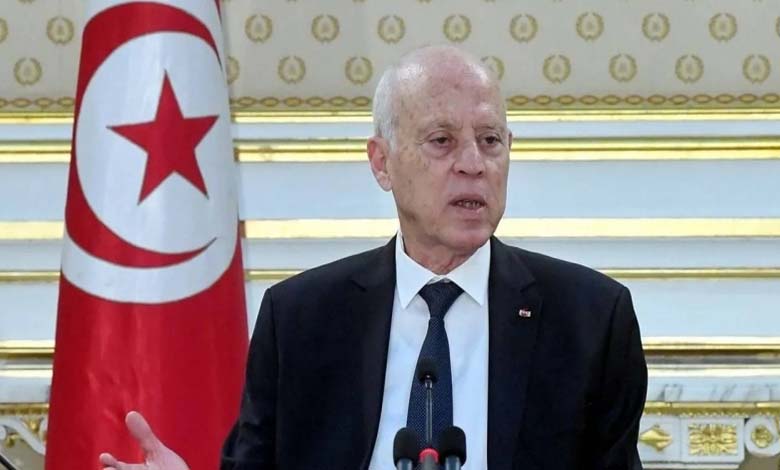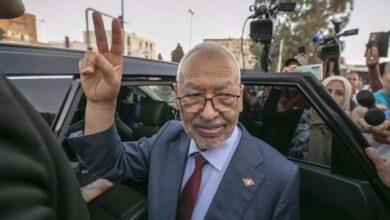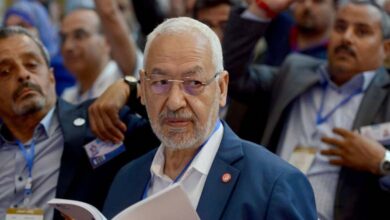How Kais Saied Ended the Control of the “Muslim Brotherhood” Over Tunisia and Its Institutions: A Report Explains

Tunisian authorities continue to track down the Muslim Brotherhood and dry up their sources of funding, as part of the campaign launched by President Kais Saied since the beginning of his first term. He vowed to eliminate the terrorist organization, prevent its return to the political scene, and block its attempts to destabilize the country in service of its regional agendas.
-
Who is Noureddine Bhiri, the mastermind of the Muslim Brotherhood in Tunisia, accused in the travel case after being sentenced?
-
Saied is determined to eliminate the Muslim Brotherhood in Tunisia… Details
A report published on Youm7 highlighted Saied‘s efforts to dismantle the group from the outset, pointing to the extensive investigations opened by Tunisian authorities into suspected money laundering and the receipt of suspicious funds by several civil and human rights organizations. These funds were reportedly provided by foreign entities supporting the Brotherhood’s objectives to influence Tunisia’s internal affairs.
The report also discussed the war Saied waged on the Brotherhood and the cleansing of state institutions from elements of the Brotherhood organization, which had spread corruption and exacerbated the country’s crises.
-
The Ennahdha Movement collapses… Crises hit the Muslim Brotherhood in Tunisia
-
Tunisia Ends the Era of the Muslim Brotherhood: Kais Saied Wins Presidential Election in the First Round
These elements, which President Saied confirmed were working to disrupt any public facility, were noted to have worsened recently, making it essential to purify the institutions. Saied emphasized that this corruption, although systematic, still persists with individuals within state institutions, hindering the functioning of the government, mistreating citizens, and being linked to Brotherhood-affiliated lobbies.
President Saied has taken several measures to eliminate the terrorist group and its corruption. After about two years in power, he sent multiple messages to all political parties and warnings to the Ennahdha Party and its parliamentary allies, accusing them of attempting to implode the state from within, embezzle public funds, divide Tunisians, and destabilize the country.
-
Tunisia: Mekki’s Return to the Presidential Race Revives Muslim Brotherhood Hopes Despite Their Diminished Popularity
-
Tunisian Muslim Brotherhood Leader Sentenced to Three Years in Prison
On July 25, 2021, Saied ended a decade of Muslim Brotherhood rule, closing the door on dark years during which they set the country back decades. With widespread popular support, he froze the Parliament’s activities, stripped its members of immunity, and dismissed the Prime Minister, using the highest legal provisions in the country, including Article 80 of the Constitution.
On June 25, the Tunisian state completed the final phase of eliminating the Ennahdha Movement and its corruption. A Tunisian court sentenced Rached Ghannouchi, the leader of the movement, to one year in prison, with an additional three years of administrative monitoring. Ghannouchi had previously been sentenced to 15 months in an appellate court, before appealing to the Court of Cassation, which overturned the decision and referred the case to the Tunis Court of Appeals for reconsideration.
-
Muslim Brotherhood Practices: Spread of Fake Accounts in Tunisia to Influence Elections
-
Tunisia’s Muslim Brotherhood and the Elections: Presidential Messages Expose Efforts to Gain Foreign Support
Currently, the state is conducting a comprehensive audit of recruitment and integration operations in the public service and all government institutions from January 14, 2011 (the date of the fall of the Zine El Abidine Ben Ali regime and the rise of the Muslim Brotherhood) to July 25, 2021, the date of the presidential measures that ended their rule.
-
In the Presidential Elections… Tunisia Crushes the Hopes of the Muslim Brotherhood
-
The Tunisian Muslim Brotherhood Casts Doubt on Election Results Ahead of Time, and the Electoral Commission Responds… Details












